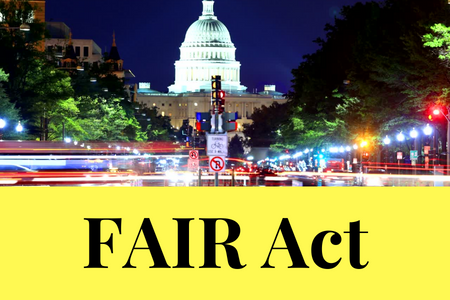The NBOME stands with the American Association of Colleges of Osteopathic Medicine (AACOM) in its efforts to spearhead H.R. 8850, the Fair Access in Residency (FAIR) Act.
Introduced on September 15 by U.S. Representatives Diana Harshbarger (R-TN), Chellie Pingree (D-ME), and Sam Graves (R-MO), the FAIR Act aims to ensure that all Medicare-funded residency programs accept COMLEX-USA by addressing the unfair and unsustainable system that excludes DO students from residencies or requires them to take the USMLE.
“We applaud AACOM’s efforts to ensure DO parity in graduate medical education (GME), and we are grateful to Reps. Harshbarger, Pingree, and Graves for their continued support,” said John R. Gimpel, DO, MEd, president and CEO of the NBOME.
“While COMLEX-USA is first and foremost a licensure examination, we recognize its secondary use in residency applicant selection,” Gimpel added. “We continue to advocate for a holistic residency selection process, but to the extent that a licensure exam is used as part of that process, it should be the one that has an evidence-based design to align with the practice of osteopathic medicine and the distinctive educational pathway leading to the DO degree, and evidence to support its validity in that regard.”
“It’s more critical now than ever that we ensure our taxpayer-funded residency training programs are fairly and equally deploying all the best talent of tomorrow’s doctors and specialists, from both DO and MD educational backgrounds,” said Harshbarger. “This bill is an important step toward ensuring transparency and equality in our taxpayer-funded GME programs, with the ultimate goal of increasing the number of physicians trained and serving our communities.”
“As one of the fastest growing health professions in the country, doctors of osteopathic medicine provide essential care in our communities, particularly in rural and underserved areas. It’s ridiculous that osteopathic medical students are facing discrimination and extra hurdles to accessing federally funded residency programs. The FAIR Act will help to ensure more accountability from these programs,” said Pingree.
“In a day and age when doctors are in short supply, specifically in rural areas, it’s critical they are able to complete their training and begin practicing,” said Graves. “This bill will remove some of the hurdles which can keep them from taking the next step in their training.”
As efforts continue to pass the FAIR Act, please visit AACOM’s Action Center to learn more and to learn how to contact other legislators for their support.

